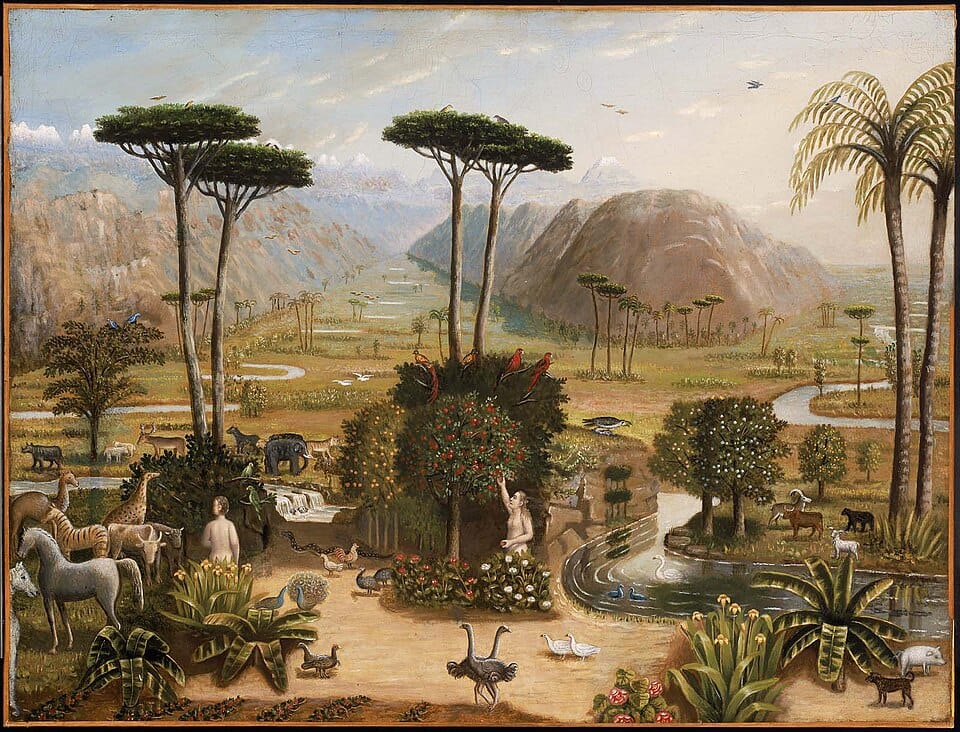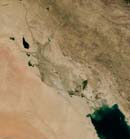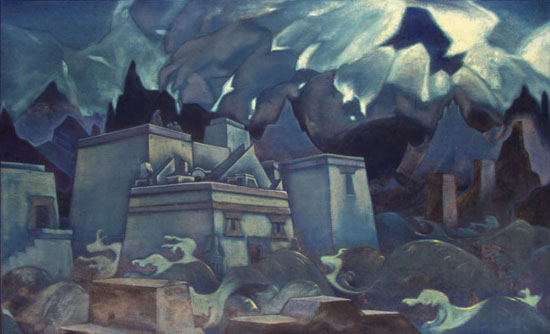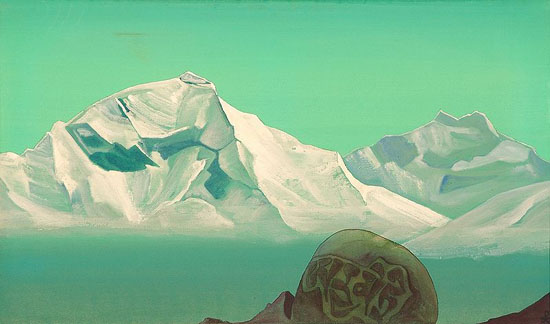Where is Edenʔ

I have my own theory of course, between the thighs of southern Iraq.

Serious scholars have gone further though, plotting the course of the four rivers mentioned in Genesis, motivated as much by the love of a good mystery as by the desire to authenticate a Biblical legend. But it also has led to lamentations: the location of Eden must have been lost forever, because The Flood rearranged the topography of Mesopotamia. Alas.
This connects it to the legend of the lost city of Atlantis ("ghost towns in the ocean..."), which appeared first in the writings of Plato, but was popularized only in the 1880's by Ignatius L. Donnelly and Theosophists like Madame Blavatsky. The legend became especially popular in 1920's Europe in the aftermath of World War I. Below is Russian painter Nicholas Roerich's interpretation from 1928-29.

Inevitably, as things worsened in the 1930s, such ideas were snapped up by popular writers like James Hilton whose novel Lost Horizon made Shangri-La famous in 1933 (technically 1934 with the success of his next novel Goodbye Mr. Chips). Aldous Huxley's Brave New World was published in 1932, H.G. Wells' The Shape of Things to Come in 1933.
Roerich, meanwhile, was living in India's Himalaya foothills. In 1933 he painted The Path to Kailash, below. Mt. Kailash and the surrounding area in south-western Tibet are sacred in the Hindu religion as Shiva's home and in the Tibetan religion as the center of Eden (Shambala). Kailash is also sacred to Jains and to Bön. These days many pilgrims (including secular ones) walk around the mountain, a journey of 32 miles, but no one is permitted to climb it. It symbolizes reincarnation - a dream of transcending death.

Of course, such ideas also attracted the Nazis. Himmler and Rudolf Hess organized expeditions to Tibet throughout the 1930's. The problem with literal thinkers is that they ignore the real function of fables and allegory. If the only record is found in Genesis, and if Adamah = “dust,” then the story is and always was a foundation myth, of how humanity emerged from the dust dreaming of an imaginary lost paradise which became known as Eden. Eat my dust…
A newer idea these days is that the loss of the Garden of Eden was a metaphor for climate change. Not a flood but drought. Pollen studies have suggested that the Mediterranean world suffered a societal collapse around 1200 BC, after two millennia of steadily worsening drought. This affected Mycenaean Greece, Troy, Ugarit, the Hittites, Egypt... Those who favor volcanic eruptions and tsunamis point to Santorini, which exploded circa 1600 BCE.
For this Courbet painting... The Origin of the World?
For more on Roerich, here and here and here
For Himmler's pursuit of the Holy Grail, here (scroll down)
For Hermann Hesse (not Rudolf Hess), who published A Journey to the East in 1932, here
